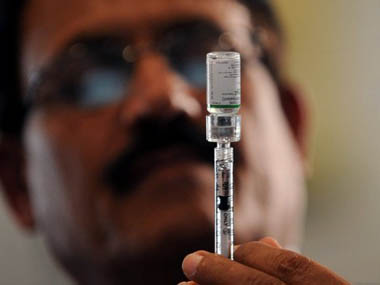By Anil Rego
One of the most important investment decisions that one can make is that of selecting the right health insurance plan. There are several insurance providers and plans in the market today and one has to carefully select the best plan. There are several aspects to be considered when selecting the right insurance plan.
The usual considerations are premiums, deductibles, copay, etc. Apart from these there are others such as hospital network and the conditions of the cover. Some covers include medicine, doctor’s fees, and a stipend during recovery period, while others cover only hospital costs. There are also policies covering treatments such as Ayurveda and Homeopathy.
[caption id=“attachment_1120009” align=“alignright” width=“380”]  AFP[/caption]
A good medical cover should, however, include hospitalisation, doctor visits, medicine, emergencies, dental and vision issues, accident cover, lab tests, rehabilitation expenses, and a stipend/ cash cover for the period that you are out of action due to an illness/ injury.
Family floater plans are the ideal insurance option for those with a family as it will cover one’s entire family under the same medical insurance, thereby saving a lot of money and hassle in the event of any unforeseen illness. Even if the family consists of a husband and wife, it is advisable to take a family floater plan as these offer higher covers and benefits. For example, if need be the cover can be entirely used by one person.
Pre-existing conditions are another major aspect to be studied before taking up a health insurance. Most insurers have very strict policies when it comes to pre-existing conditions, as they do not cover these for a certain time frame (between a year to 5 years). However, if you already have a health insurance and are shifting provider, there will be no waiting period. It is also important to note that there are different rules for different pre-existing conditions, some will be covered after the waiting period, while others will not be covered at all.
If you are renewing the medical insurance, always make sure that the cover remains the same in terms of the conditions, as the insurance company might have changed the cover definition or the terms of service in the past year. It always pays to double check before renewing the premium. The renewal age is another factor that should be considered, since when one is in their twenties the premium is very low, but as one ages not only does the premium increase, but in many cases the cover ceases. It is important to choose an insurance policy which has the longest renewal age, so that you can benefit from the medical insurance for as long as possible. Most insurance companies have a maximum renewal/ entry age, which is the age at which the policy will discontinue or one cannot take a new policy. This has recently been set at 65 years by the IRDA and senior citizens can take advantage of this by renewing their health insurance for the longest duration possible. Government-owned companies offer the longest renewal ages, with some of them going up to 80 years.
One can also port their insurance to another company only at the time of renewal, and one must give a written communication to her insurer requesting a shift and specifying the new insurance company to which the policy is being shifted, at least 45 days before renewal is due.
Tax benefit is another aspect to any health insurance. Under Section 80D health insurance premiums are deductible from one’s taxable income, up to a limit of Rs 20,000 for senior citizens and Rs 15,000 for others.
Summary:
• Medical insurance should be carefully selected after looking at a variety of factors.
• Look for policies with maximum cover in terms of doctor visits, lab tests, etc.
• Insurers with more hospitals in their network are better.
• Check their conditions on pre-existing illnesses.
• You can port your insurance if you are unhappy with your current provider.
The author is CEO, Right Horizons, an investment advisory and wealth management firm.


)
)
)
)
)
)
)
)
)



